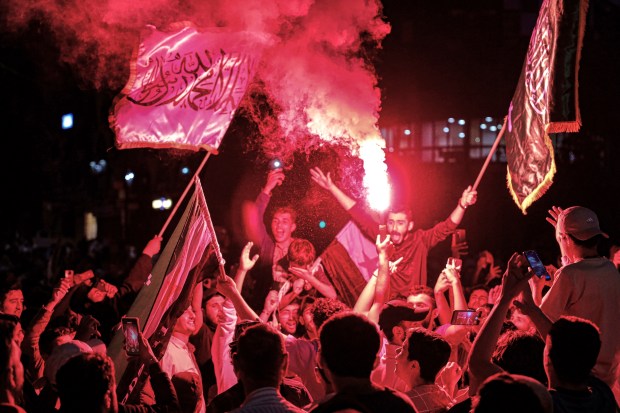The City Council’s mad scramble for new revenue sources, just getting underway per the orders of Mayor Brandon Johnson, is shaping up to be a spectacle that should embarrass City Hall.
It won’t, of course, because of the ideology of this administration, which reflexively equates higher government spending with progress on social ills and the wealth redistribution it seeks. What ought to be happening, as 42nd Ward Ald. Brendan Reilly eloquently stated during Wednesday’s kickoff hearing of the City Council’s new Subcommittee on Revenue, is that city officials should first be reviewing every program, department and division in local government for whether they’re needed and whether they’re actually effective at their missions.
When businesses or households find themselves spending more than they’re taking in, they look hard at their spending. Where can we tighten our belts? What’s something we’d like to keep but we don’t need? Of course municipal governments should so the same.
This subcommittee, chaired by 6th Ward Ald. William Hall, a freshman, is just getting started, but it’s already made itself look ridiculous with Hall’s crude and porous Google Doc survey distributed to all 50 aldermen asking if they’d support or oppose 16 different ideas for new cash streams. These included such chestnuts as restoring the so-called head tax requiring businesses to pay a levy based on their Chicago head count, as well as imposing the 1% grocery tax that the state of Illinois is phasing out. Some of the ideas aren’t taxes at all, one of them being Hall’s suggestion to allow for digital advertisements along the Chicago River, a shortsighted idea if ever there was one given that one of Chicago’s greatest attributes is its gorgeous architecture and incomparable urban vistas.
Here’s the level of sophistication Hall is bringing so far to the “debate.” In the survey, aldermen were asked to respond yes or no to whether they’d support the following: “Sales Tax on Services; Property Tax (CPI Increase); Monthly/Wireless Plan Tax; Increase in LGDF Share; Head Tax; Alcohol Tax; Checking Bag Tax; Video Gaming Tax; Grocery Tax; City Sticker Increase; Congestion Tax; Income Tax Surcharge; Package Tax; Vacant Lot Tax; Ticket Reseller Amusement Tax; Enterprise Zones.”
We’ve never seen so many taxes floated in one document.
There was no other explanation or context for these various options. “Checking bag tax”? “Package tax”? The Tribune asked Hall what those were, and reported he had little to offer other than that the package tax would “look at weights and distributions of packages that move throughout the city.”
Say what?
How is any lawmaker supposed to take a position on something like that?
Still, such silliness is revealing. Voters already are well aware of the philosophy that drives the mayor and his progressive allies on the council: Chicago’s problems can only be solved with more money and more programs. The lack of creativity isn’t surprising, but it is continually disappointing.
“No one would disagree with the fact that we need more revenue,” Hall told the Tribune.
Actually, Alderman, some might. Maybe even some right here.
Consider the trends around the city’s corporate fund, which is the source of much of city government’s programmatic spending. Thanks to the massive influx of federal pandemic aid, corporate-fund revenue spiked in 2021 to $5.2 billion from $4 billion in 2020 (which, by the way, was up slightly from 2019 in case you’re wondering whether the worst of the pandemic years resulted in a fiscal cliff). With that assistance continuing, the revenue fund only has risen from there, to an estimated $5.5 billion in 2023.
So what’s the fiscal emergency requiring strapped citizens to dig deeper?
City officials are alarmed that corporate-fund revenues will fall “marginally” over the next several years now that the federal assistance is running its course. This is from a baseline that jumped 30% in a single year.
The danger when the feds gifted state and local governments with so much COVID largesse always was going to be that some of them would use the cash to set up new programs they couldn’t later afford to maintain. Chicago apparently has fallen straight into that trap, which will come as a surprise to few but nonetheless hardly justifies this craven cash-grab effort.
Ald. Reilly stated what should be obvious and standard practice but seems like a bizarre, alien concept to far too many of his colleagues. “The bottom line here is this is not how you balance budgets,” he said of the desperate search for cash. “The bottom line is you start with efficiencies and cuts. Then when you can’t cut or find efficiencies enough to balance the budget, then you have conversations about creative revenue streams and what we need to go and ask the taxpayer for.”
He asked Budget Director Annette Guzman to calculate how much of the federal COVID relief cash went to shore up existing services and how much went to establishing new programs. She said her office already is working on that and will provide the information.
That will be useful, no doubt.
But, as is clear by the performance so far of Hall’s subcommittee, this administration and too much of this City Council aren’t getting the message Chicago voters sent them in March by rejecting a referendum to quadruple the tax on real estate sales over $1.5 million in order to combat homelessness.
Chicagoans are fed up with the constant appetite for more of their money. They don’t trust this administration to spend wisely what they do collect. The energy being devoted to finding some tax — any tax, apparently — to feed the insatiable city-government beast would be far better spent making an honest inventory of what city government does now in order to determine what it can reasonably go without.
Just like households, businesses and better-run governments do.
Submit a letter, of no more than 400 words, to the editor here or email letters@chicagotribune.com.



